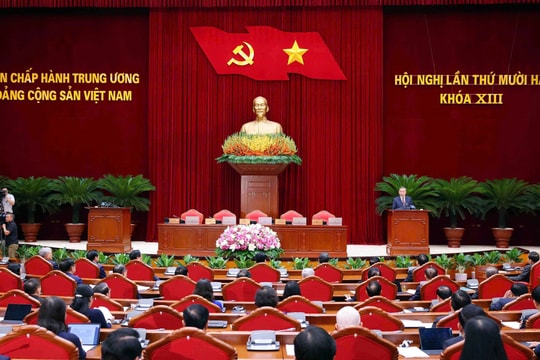Study and follow Uncle Ho's example in selecting, using and managing cadres.
(Baonghean.vn) - During his leadership of the Vietnamese revolution, President Ho Chi Minh paid special attention to personnel work, to selecting virtuous and talented people, and to using and managing cadres.
Together with the Party Central Committee, President Ho Chi Minh creatively combined Marxist-Leninist theory with world experience and Vietnamese practice to properly train, practice, select, use and manage cadres. In selecting cadres, he paid attention to both virtue and talent. He said, “Just like a river must have a source to have water, without a source the river will dry up. A tree must have roots, without roots the tree will wither. A revolutionary must have ethics, without ethics, no matter how talented he is, he cannot lead the people.”1He also emphasized, "We must cultivate both virtue and talent. Without virtue, we are useless. Without talent, it is difficult to do anything."2.
Therefore, as soon as the August Revolution succeeded, Uncle Ho paid great attention to the use of talents, the use and management of cadres. According to Uncle Ho, "We must use cadres skillfully - no one is good at everything, good at everything. Therefore, we must use people skillfully, correct their shortcomings, and help their strengths. Often we do not know how to use people according to their talents. For example: blacksmiths are told to make cabinets, carpenters are told to forge knives. As a result, both people are confused. If we know how to use people according to their talents, both people will be successful."3.
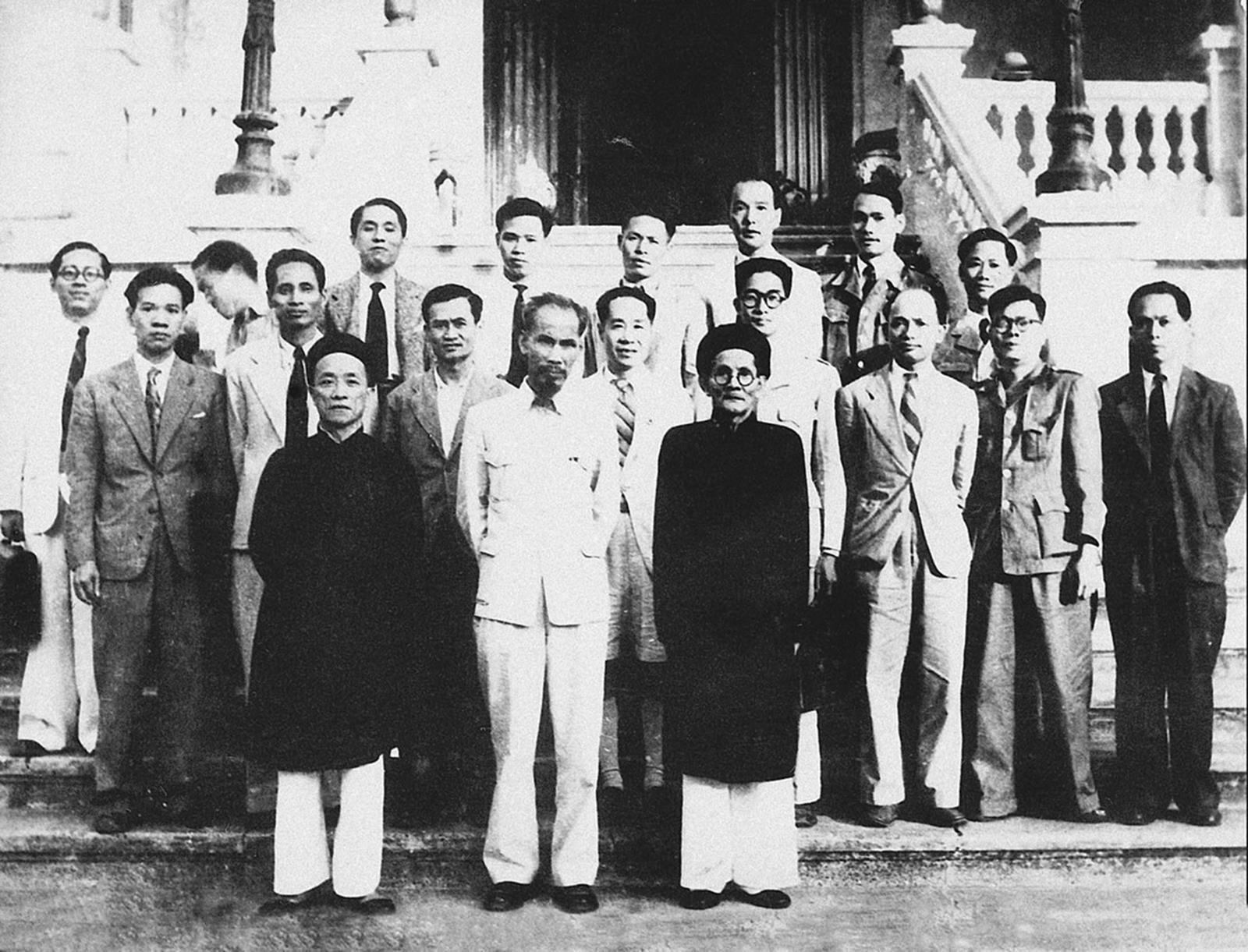
Thanks to those correct and clear-sighted viewpoints, when the country had just gained independence and was still facing countless difficulties, both internal and external enemies, Uncle Ho and our Party were very successful in uniting and gathering all classes of people through personnel work. Uncle Ho invited a number of scholars, intellectuals, and officials of the feudal regime who were patriotic, knowledgeable, and experienced to help the Government. Among them were Mr. Bui Bang Doan, former Minister of Justice, to become Head of the National Assembly Standing Committee; Mr. Huynh Thuc Khang, former President of the Central Region House of Representatives, to become Minister of the Interior and later Vice President; Mr. Phan Ke Toai, former Imperial Commissioner, to become Minister of the Interior.
In 1946, before going to France, Uncle Ho trusted and gave full authority to run the country to Mr. Huynh Thuc Khang and only said one sentence: "With the unchanging, respond to all changes". That was when the country's situation was very difficult and complicated, but Uncle still gave authority to a scholar and intellectual who did not follow any political party. By acting that way, President Ho Chi Minh gathered all the best of the nation to join the Resistance War to save the country and build the nation. Many intellectuals living abroad have high incomes and better working conditions but have voluntarily returned to help the country, such as engineer Tran Dai Nghia, professor of Mathematics Le Van Thiem, agronomist Luong Dinh Cua, medical doctor Dang Van Ngu, doctor Tran Huu Tuoc, Nguyen Khac Vien, etc. At the same time, many outstanding intellectuals such as professor Ta Quang Buu, professor Ton That Tung, Ho Dac Di, lawyer Phan Anh, professor Hoang Minh Giam, Nguyen Van Huyen, Nguy Nhu Kon Tum, doctor Vu Dinh Tung, etc. are all highly regarded to promote their talents to serve the country. In particular, Uncle Ho recognized, evaluated, and selected cadres very accurately and effectively, such as assigning comrade Vo Nguyen Giap to be in charge of the army when he had never attended any military school, was a history teacher at Thang Long Private School, and then promoted him straight to General. Many comrades were selected and assigned tasks by Uncle Ho, such as Truong Chinh, Le Duan, Pham Van Dong, Nguyen Chi Thanh, etc., all became outstanding leaders of the country.
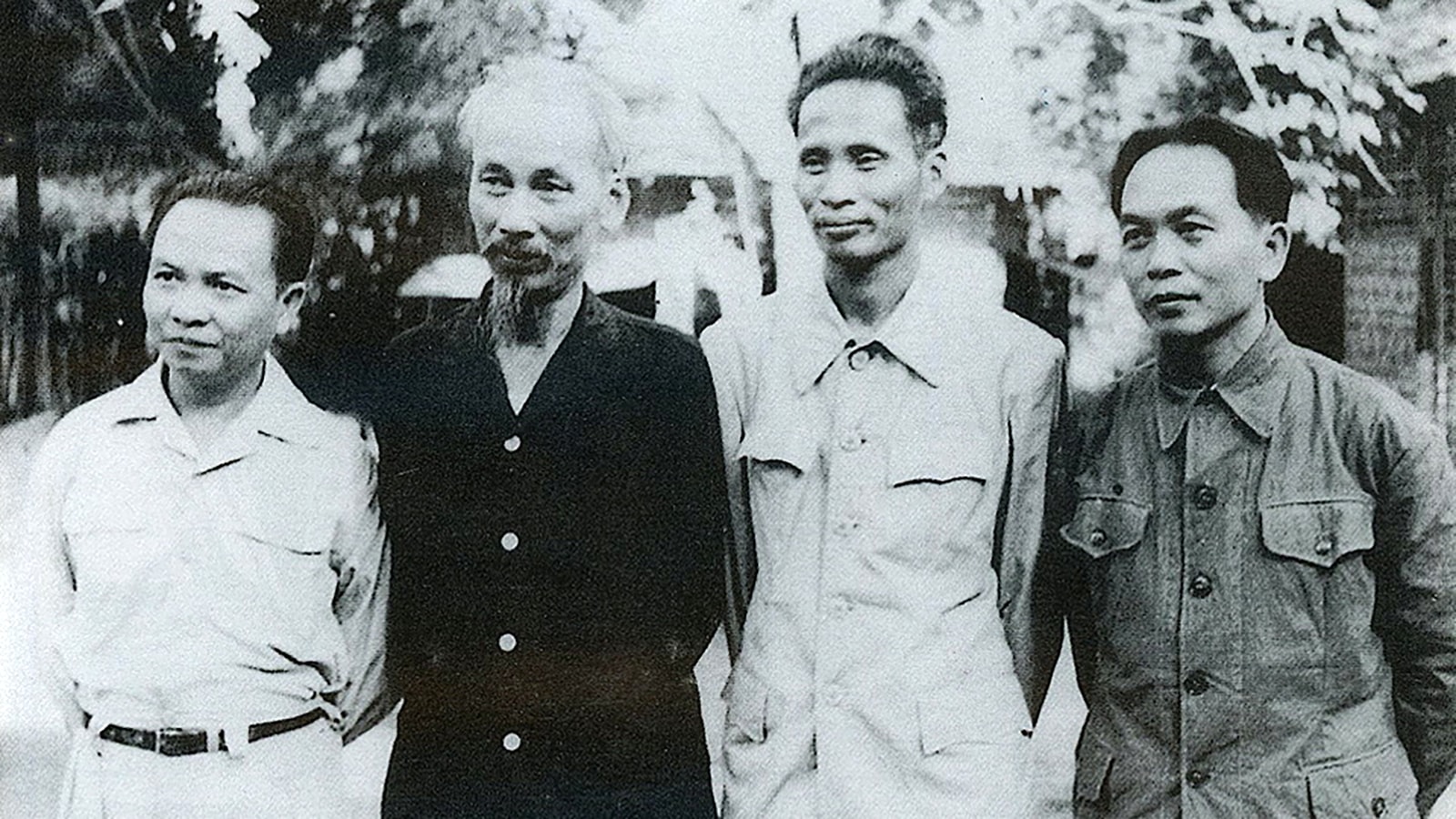
He once advised, “When promoting cadres, do not do it like “pounding rice”. That is, do not consider carefully before promoting. After promoting, do not help them. When they make mistakes, push them down, wait until they do well, then promote them again. A cadre who is promoted and put down three times like that is ruined for the rest of his life. For cadres, not only must we consider clearly before promoting. But after promoting, we must help them, advise them, and cultivate their confidence and self-respect.”4. He also noted clearly: “Before assigning a task, it is necessary to discuss it thoroughly with the cadres. If they cannot handle it, do not force them to do it. Once assigned, you must trust them completely. Do not give one order early in the morning and another at noon. If you do not trust the cadres, you are afraid they cannot do it, and then you get involved in everything. The result is that you make excuses, and the work is still not completed. The cadres are confused all day, sad and depressed.”5.
In particular, Uncle Ho paid attention to educating and training people in charge and making decisions aboutpersonnel work: “Everything must be fair and upright, not based on personal favors, favors, or personal grudges or resentments. If you have the right to use people, you must use talented people who can get the job done. Don't drag them into this or that position just because of relatives and friends. Just because you are afraid of losing your position, you suppress those who are more talented than you.”6Uncle criticized the disease of forming cliques within the Party: “Cliques are another very dangerous disease… This disease is very harmful to the Party. It harms unity. It makes the Party lose talent and cannot fully implement its policies.”7.
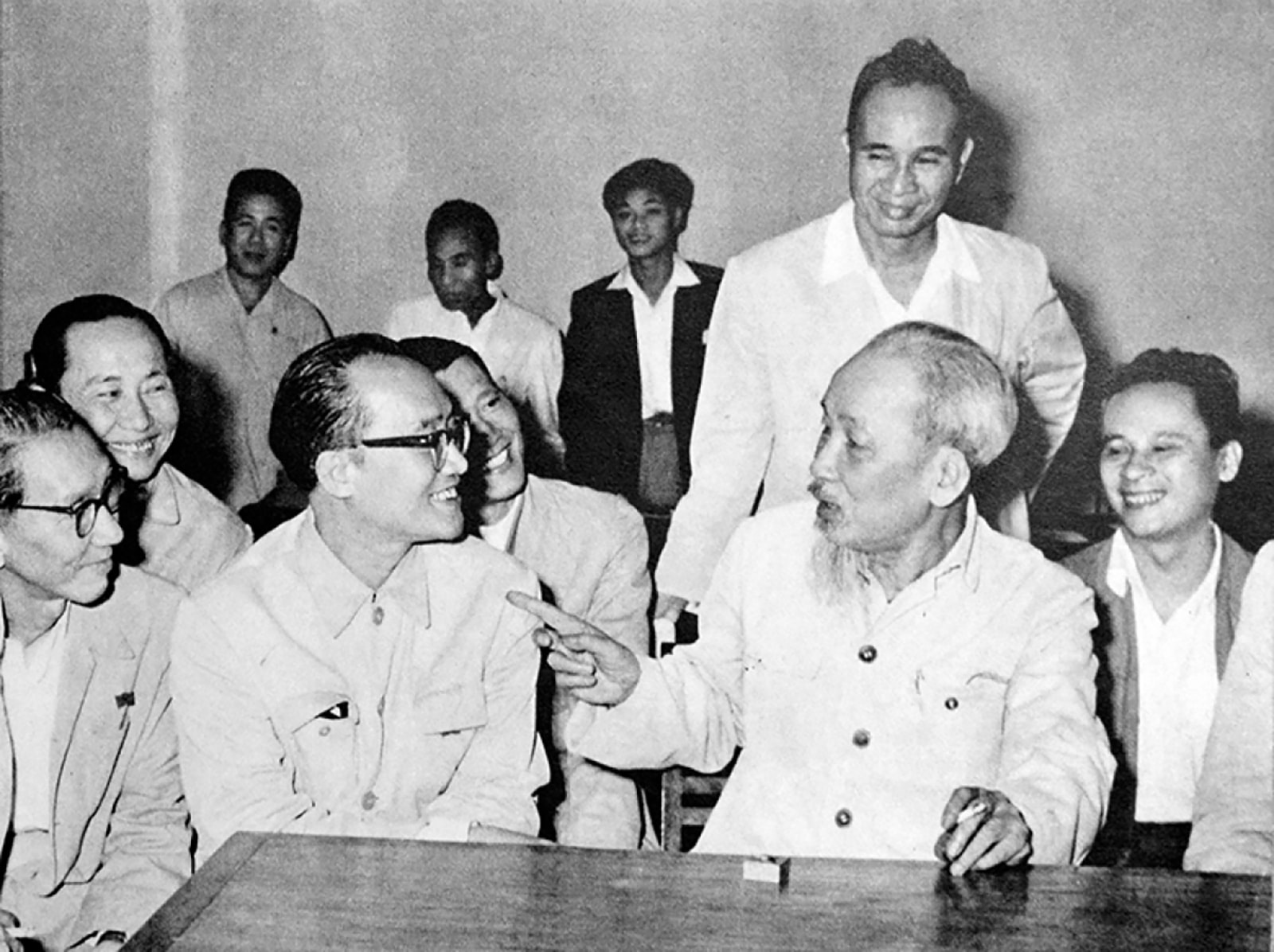
Uncle Ho's teachings on selecting, using and managing cadres are profound and heartfelt to each of us, cadres and party members. Studying and following Ho Chi Minh's ideology, morality and style in the new revolutionary period is more necessary than ever, especially in cadre work.
Recently, our Party and State have had many very important policies on cadre work to implement Uncle Ho's ideology and the resolution of the 13th Party Congress, thus achieving many good results. The Party's cadre team has grown day by day and is continuing to lead the country to achieve many great and historic achievements.
However, in some localities, departments, branches and agencies have not really done a good job in selecting, using and managing cadres, so the results of implementing political tasks are not high. A number of leaders and managers have shown signs of pushing, avoiding, and fearing responsibility, so they have been slow in resolving and handling work, causing many difficulties for the grassroots, people and businesses. The Politburo issued Regulation No. 80-QD/TW dated August 18, 2022 on "Decentralization of cadre management and appointment and introduction of candidates" with very strict, scientific and democratic provisions such ashuman resource appointment processon-site. The process has 5 steps, but in some places where the leader has a personal, autocratic expression and a weak spirit of internal criticism and self-criticism, the promotion and appointment are essentially just a formality, and the final result depends on the leader's opinion.
Currently, there is an opinion that, as a Party Committee member, it is good to be assigned to any job, but there are some cases where the time of leadership, direction, and management is prolonged due to being in charge of a sector or field without proper training and lacking practical experience in that sector or profession. It is worth noting that some leaders select and recommend weak deputies to make it easier to direct and manage and difficult to replace them, leading to the consequence that when the leader is transferred to another job or retires, the deputy often takes over. If the deputy promoted to the position of leader learns from the experience of his predecessor and recommends and selects a deputy who is weaker than him, it will greatly affect the efficiency of the work and reduce the prestige of the Party Committee, agency, or unit. Recently, there have been a number of cases where newly promoted and appointed officials have quickly "self-evolved" leading to embezzlement, corruption, violating the principle of democratic centralism, causing negative public opinion and have had to receive strict discipline. Lessons need to be learned for timely correction...
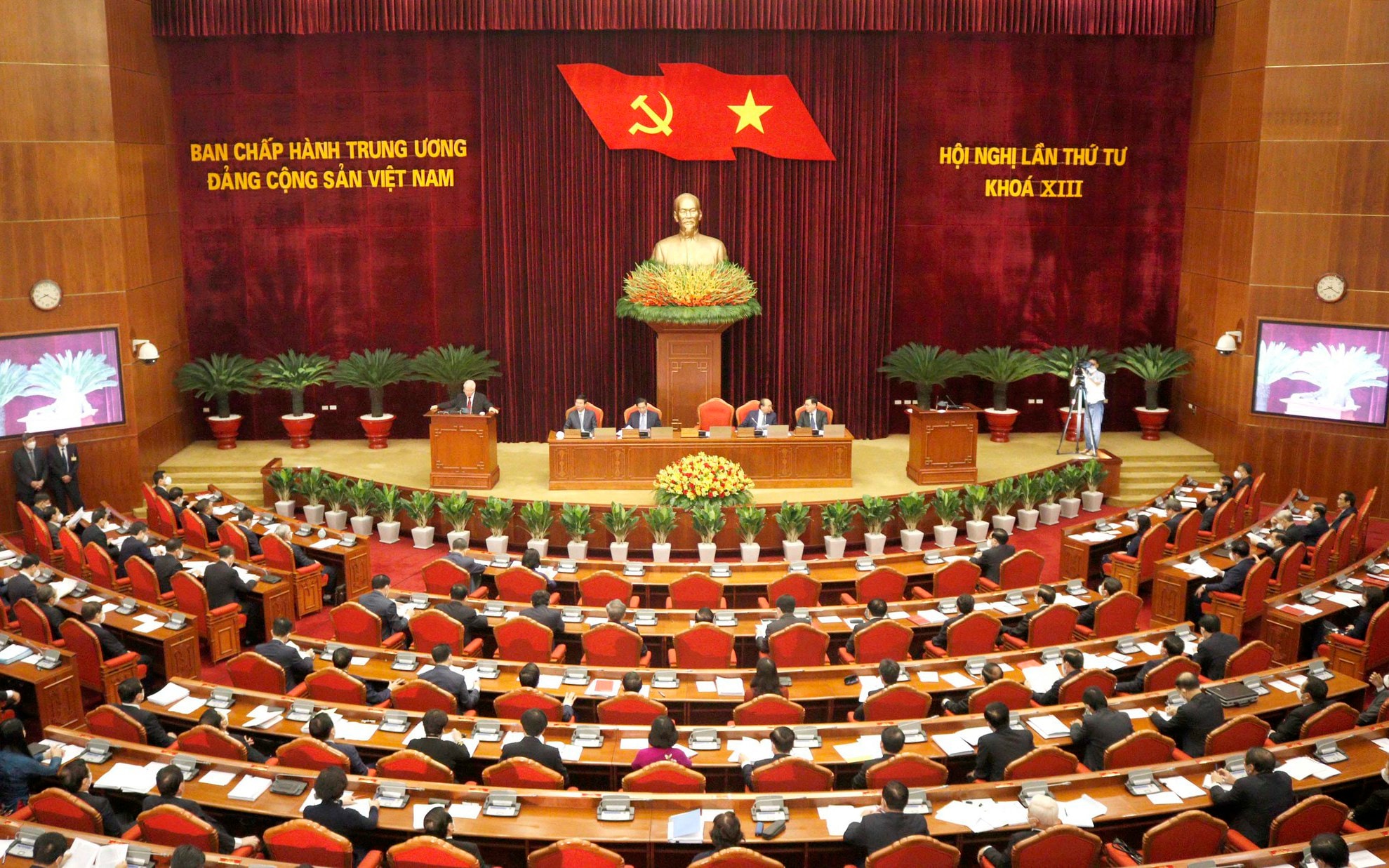
To learn and follow Uncle Ho's example in selecting, using and managing cadres in the new situation, it is recommended that Party committees at all levels continue to better lead and implement the following solutions:
The first,Continue to lead the promotion of studying and following Ho Chi Minh's ideology, morality and lifestyle so that the movement can penetrate more deeply and truly become a solid spiritual foundation in social life.
During his lifetime, President Ho Chi Minh was a shining example and model of ideology and style of being close to the people, respecting the people, serving the people all his life, and taking great care of the people's prosperous and happy life. In the coming time, Party committees at all levels will continue to direct the improvement of the quality and effectiveness of the implementation of Conclusion No. 01-KL/TW dated May 18, 2021 of the Politburo on continuing to implement Directive No. 05-CT/TW dated May 15, 2016 of the Politburo (12th tenure) on "Promoting the study and following of Ho Chi Minh's ideology, morality and lifestyle" in conjunction with Conclusion No. 21-KL/TW dated October 25, 2021 of the Central Executive Committee on promoting Party building and rectification and the political system, resolutely preventing, repelling and strictly handling cadres and party members who have degraded in political ideology, morality, lifestyle, and manifestations of "self-evolution", "self-transformation"... On that basis, educate, train and inspect cadres and party members, especially the staff agencies on personnel work, not to violate the diseases that Uncle Ho pointed out before such as selection, Using unethical and untalented cadres, not considering carefully when promoting cadres, not discussing with cadres before assigning tasks, not trusting them when assigning tasks, suppressing more talented people for fear of losing their position, pulling relatives and friends into this or that position, forming cliques...
Monday,Regularly thoroughly grasp and seriously and consistently implement the viewpoints, tasks and solutions of Resolution No. 26-NQ/TW, dated May 19, 2018 of the 7th Central Conference (12th term) on "Focusing on building a contingent of cadres at all levels, especially strategic-level cadres with sufficient qualities, capacity and prestige equal to the task", Regulation No. 132-QD/TW dated March 8, 2018 of the Politburo "on annual review, assessment and classification of quality for collectives and individuals in the political system", Regulation No. 50-QD/TW dated December 27, 2021 of the Politburo "on cadre planning", Regulation No. 80-QD/TW dated August 18, 2022 of the Politburo "on decentralization of cadre management and appointment and introduction of cadres for election", Conclusion Notice No. 20-TB/TW dated September 8, 2022 of the Politburo on "Policy on job arrangement for cadres under the management of the Politburo and Secretariat after being disciplined". On that basis, deeply aware of the viewpoint that "cadres are the decisive factor for the success or failure of the revolution", cadre work is the "key" link in the work of building the Party and the political system. Strictly and consistently implement the principle of the Party's unified direct and comprehensive leadership of cadre work and cadre management in the political system. Respect and act according to objective laws, regularly innovate cadre work in accordance with practical situations. Thoroughly grasping the principle of the relationship between political lines and cadre lines, class viewpoints and broad solidarity policies in cadre work and building cadre teams is the responsibility of the entire political system, directly of Party committees and organizations, first of all the heads and advisory bodies of the Party, in which the organizational and cadre bodies are the core as set out in the resolution.
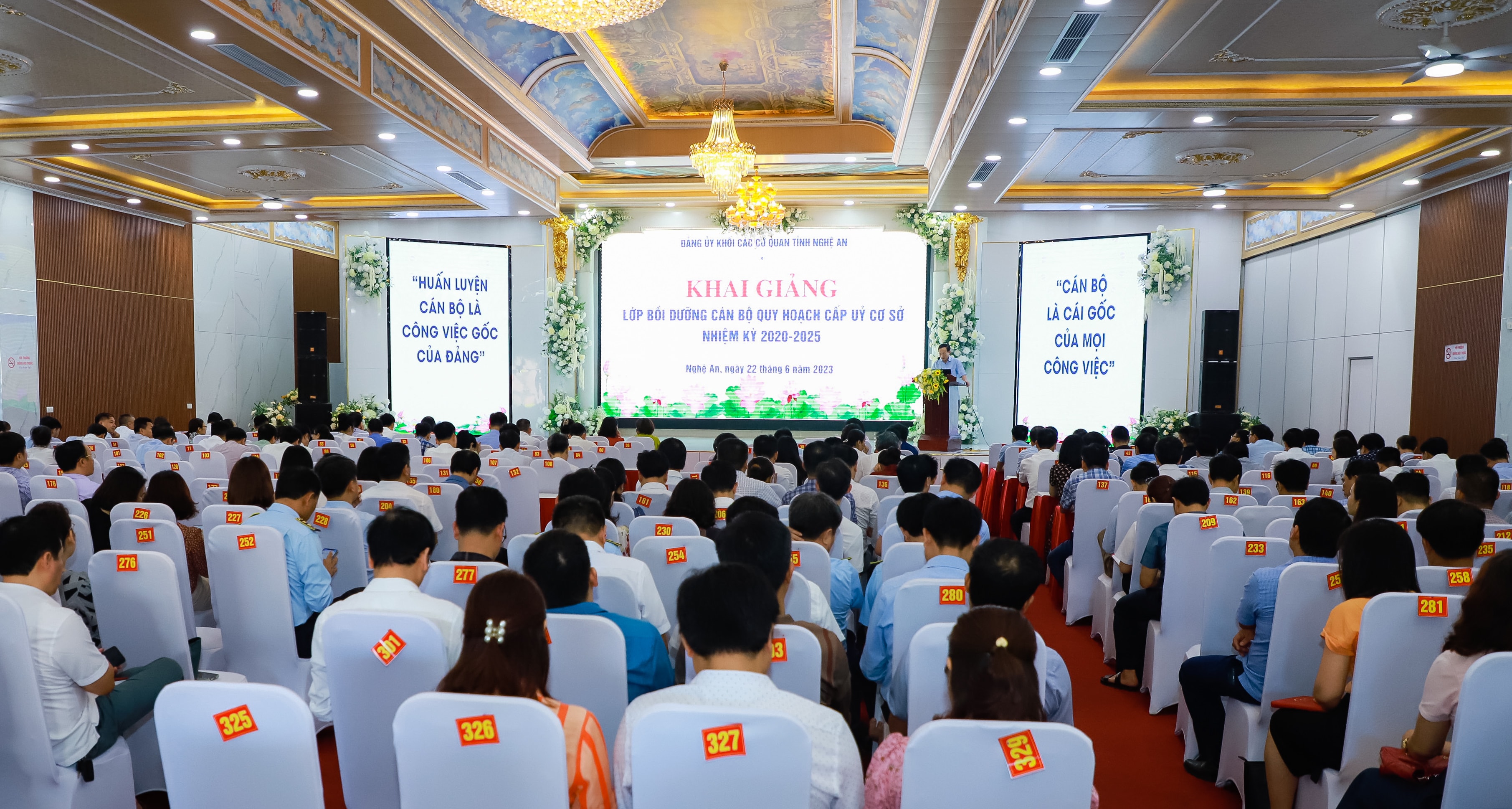
Tuesday,Party committees at all levels continue to innovate leadership methods to effectively implement strict control of power in personnel work.
Personnel work in all revolutionary periods must be closely inspected and supervised by Party committees, functional agencies and the role of the people. It is necessary to continue to research and perfect institutions to control power in personnel work. First of all, assign functional agencies to review mechanisms and policies on cadres. If any documents have loopholes, they must be supplemented promptly to help cadres minimize violations (if any) and encourage and protect cadres who dare to think, dare to do, dare to take responsibility for the common cause. Implement public and transparent standards, processes, procedures and personnel records according to regulations. Verify and promptly and effectively handle information reflected by organizations, individuals and the media. Strengthening the work of inspection, supervision, investigation, and timely handling of organizations and individuals who violate Party discipline and State laws, and abuse power to commit wrongdoings in personnel work, there are really no "forbidden zones" as directed by General Secretary Nguyen Phu Trong. Consistently implementing the principle of reviewing, evaluating, and classifying cadres: "Taking political qualities, ethics, and lifestyle as the foundation; results and work efficiency as the main measure in annual evaluation and classification" as prescribed in Regulation No. 132-QD/TW of the Politburo, combined with the results of the mid-term vote of confidence in an objective manner.
In the current situation, Party committees at all levels should have a specific address for each cadre, party member and citizen to directly reflect and provide information related to cadres under the management of the Party committee to the Party committee secretary. The Party committee secretary is the person primarily responsible for personnel work, so he needs direct information to promptly check and handle correct and constructive opinions (A secretary can be assigned to regularly monitor and report directly to the Party committee secretary). Major General Dinh Van Noi - Director of Quang Ninh Provincial Police, publicly announcing the phone number for all citizens to directly provide information on security and order work is a good experience.
Wednesday, promote the role of people in participating in building the staff.
On December 12, 2013, the Politburo issued Decision No. 217-QD/TW on the regulations on supervision and social criticism of the Vietnam Fatherland Front and socio-political organizations, Regulation No. 218-QD/TW on the participation of the Vietnam Fatherland Front, socio-political organizations and people in giving opinions on Party building and government building. Recently, the above two regulations have been implemented by Party committees at all levels and have achieved many results, but for better supervision and participation, it is recommended that the law on supervision and criticism should be considered soon, so that the Vietnam Fatherland Front, socio-political organizations and people will have higher contributions. The competent authorities also need to concretize them into legal documents soon so that the mechanism of "people know, people discuss, people do, people inspect, people supervise, people benefit" can soon come into life. Local Party committees and authorities continue to organize regular meetings with the people, thereby promptly resolving legitimate petitions from the people, including those regarding personnel work.
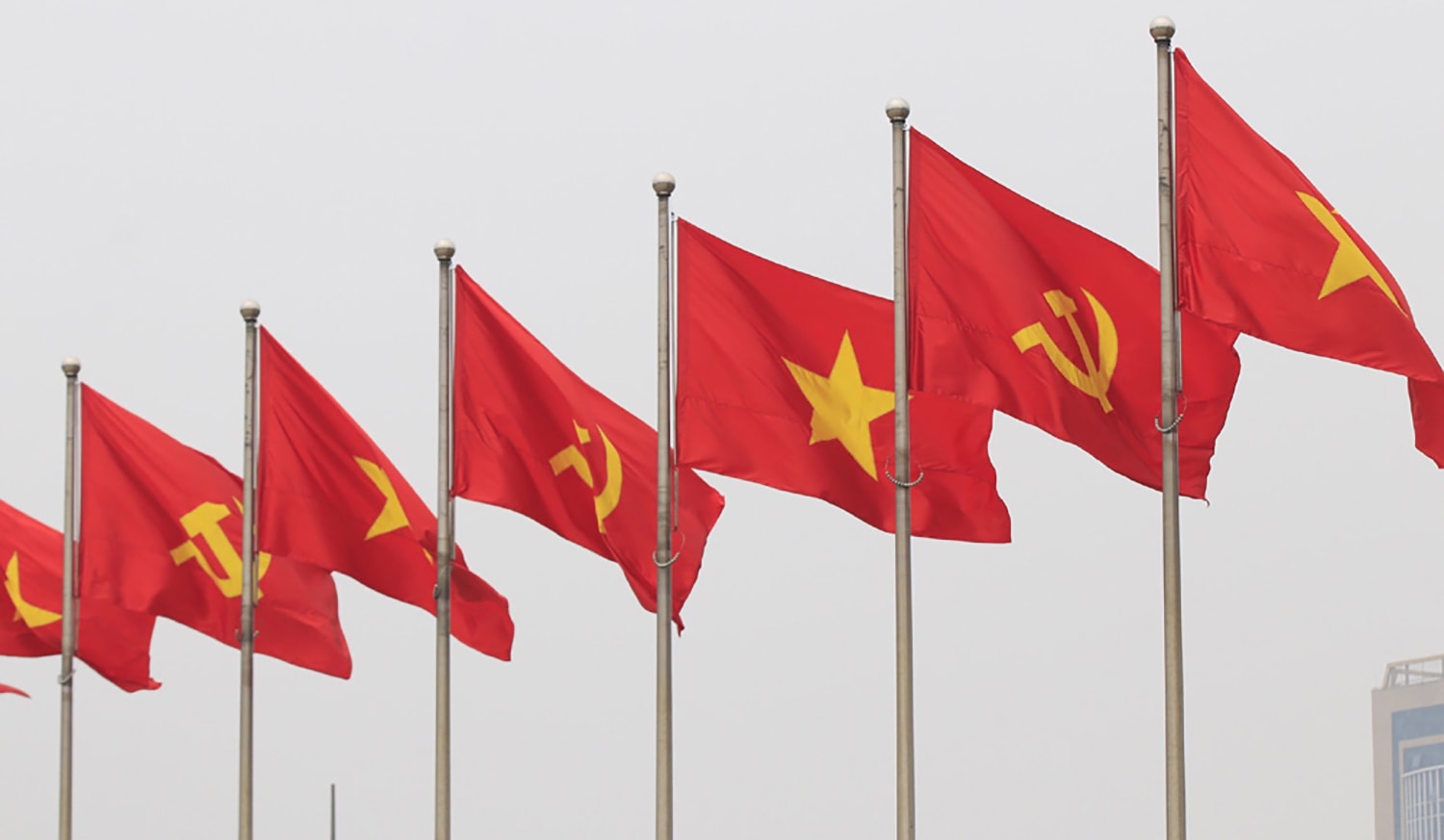
The Central Secretariat issued Decision No. 99-QD/TW dated October 3, 2017, providing a framework for Party committees and organizations directly under the Central Committee to continue promoting the role of the people in the fight to prevent and repel degradation, "self-evolution", and "self-transformation" within the Party. The Central Executive Committee also issued Regulation No. 08-QDi/TW dated October 25, 2018 "on the exemplary responsibility of cadres and Party members, first of all Politburo members, Secretariat members, and Central Executive Committee members". The above documents need to be fully implemented by all levels and sectors so that each citizen can participate in building a better cadre team in the coming time. Early expansion of forms of collecting opinions to assess people's satisfaction with each group of leaders and managers in the political system in an appropriate manner./.
_______________
Note:
1,3,4,5,6,7. Ho Chi Minh Complete Works, National Political Publishing House - Truth, Hanoi 2011, volume 5, p.292; p.314; p.322; p.123; p.297.
2. Ho Chi Minh Complete Works, National Political Publishing House, Hanoi, 1995, volume 7, page 52.

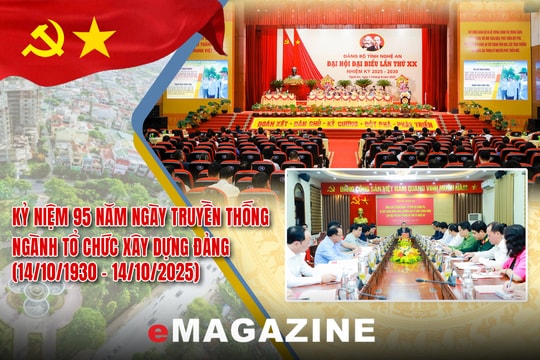
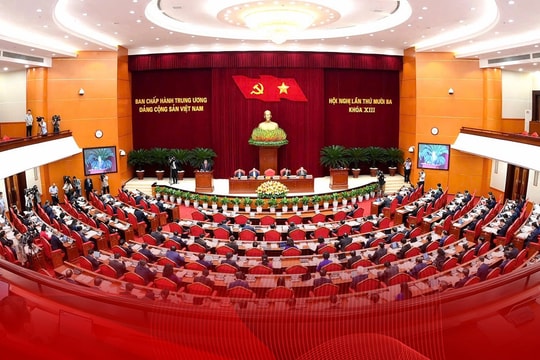
.jpg)
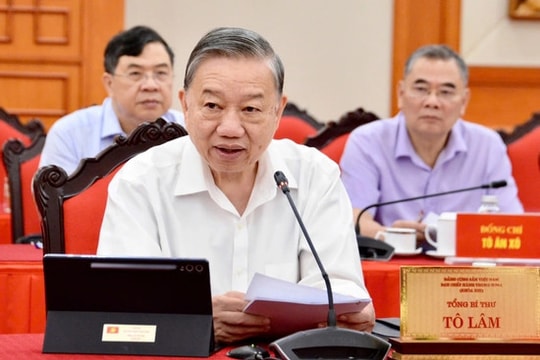
.jpg)
